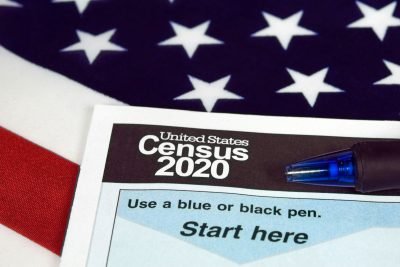The United States Census collects information to figure out how to spend about $1.5 trillion each year. Communities get federal money based on how many people of various ages live there. Money for special education, foster care, children’s health insurance and many other programs is distributed more fairly when the federal government has an accurate count of people living in each community.
The federal government counts citizens only every 10 years, so communities where people are undercounted might not get the money they need for a full decade. According to Count All Kids, the 2010 U.S. Census missed more than 10 percent of children under age 5. Count All Kids provides materials to help families understand why submitting accurate information is important. If a two-year-old isn’t included as a household member, for example, the community will have less money for education, childcare, and other services until that child has a chance to be counted at age 12.
A one-minute YouTube video with Sesame Street characters is a family-friendly way to learn more about Census 2020. For another musical take on why an accurate count is critical, talk show host and comedienne Samantha Bee shared a song about the Census by Baltimore rapper TT The Artist on her stay-home version of the show, Full Frontal.
The National Association for Family, School and Community Engagement (NAFSCE) provides materials to help families understand how to complete their census forms and why their accurate response is important. A recorded webinar from March 30, 2020, is available on YouTube: The 2020 Census and Equity – Why It Matters and How You Can Help.
Minority communities suffer when children aren’t counted
NAFSCE notes that poor and racial minority communities tend to suffer most when families don’t count their children: “Young children had by far the highest net undercount of any age group in the 2010 census. Black and Hispanic children are missed at more than two times the rate of white children.”
Homes received Census forms in the mail this winter/early spring. The questions take about 10 minutes to answer and the responses can be filed online, by phone, or by mailing in a paper form.
In Washington, the Office of Financial Management oversees a Complete Count Committee to help the public access and submit forms to include all members of their family. The state’s website includes a map of legislative districts that are drawn based on Census data and other information about programs that are impacted by the numbers:
“For every 100 households missed in the 2020 Census count, the state could lose up to $5.8 million, which would affect the ability to support children, veterans, senior citizens and middle- and low-income families adequately. An accurate count of Washington’s communities will ensure the fair distribution of taxpayers’ funds and political representation.”
Household information is confidential
On pages that address questions and concerns of families, the Office of Financial Management includes information about confidentiality and privacy protections:
“The Census Bureau collects data for statistical purposes only. It combines your responses with information from other households or businesses to produce statistics, which never identify your household, any person in your household, or your business. Your information is confidential. By law, the Census Bureau will never identify you individually.
“Title 13 of the U.S. Code protects the confidentiality of all your information and violating this law is a crime with severe penalties. In addition, other federal laws, including the Confidential Statistical Efficiency Act and the Privacy Act, reinforce these protections. The penalty for unlawful disclosure is a fine of up to $250,000 or imprisonment of up to 5 years, or both.”
Beware of scams: Use official forms from snail mail
CensusOutreach.org provides a timeline for 2020 reporting. Families receive notifications by mail and are encouraged to submit response by the end of April. The last day for households to self-respond online, by phone or by mail is July 31, 2020. The Census Bureau will not email or text people for the 2020 Census and encourages people to beware of scams: Do not open or respond to any links sent by email or text that reference the Census. Official forms come through U.S. Mail.
Hard to Count Maps 2020 provides an interactive map that shows how various states are doing in collecting census data and provides state-by-state details about return rates and where to go for further information. If online access is difficult, Washington families can contact the state Office of Financial Management by phone for more information: 360-902-0584.

